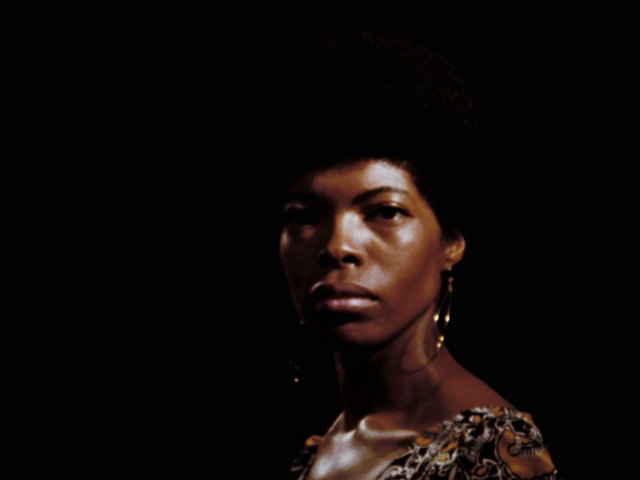
03 Nov Transforming Collective Memory: An Interview with Maya Cade, Founder of the Black Film Archive
BY MARIAM DEMBELE
Maya Cade, the founder of the Black Film Archive–an online register of Black film from 1915 through 1979–shares her journey creating the archive, the excitement she’s received since its launch, and her hopes for its future.
Maya is an audience strategist for the Criterion Collection and is based in Brooklyn. She has a deep love of film and says she has searched for a resource like the Black Film Archive for as long as she can remember, before deciding to build it herself in June 2020.
cinéSPEAK: What inspired you to create the Black Film Archive?
Maya Cade: I think this all started last year in the pandemic, like many things did. There was this moment of reckoning about what it meant to be a Black person, and the constant conversations about representation just felt limited to me. I think there were a lot of conversations about Black trauma and this very limited scope of what Black representation meant in film. Because people kept bringing the same 10 films. I started really critically thinking about what does it mean to give people a history of the past? What does it look like? How should it feel?
So, I started a Twitter thread in June 2020 while this was happening and started to kind of get at that answer. But I realized very quickly that having a Twitter thread of a listing of films isn’t enough. I needed to expand the idea.

cinéSPEAK: What was the process like creating the archive?
MC: I made a list of where things were streaming and started writing the descriptions as I was going. Even when I didn’t know fully what it would become, I knew that I really wanted to have those descriptions be something. That’s what I wanted to be the unique thing.
I think even before I worked on the website design, I had to ask myself questions, like what does the resource I want to build look like? How does that make people feel? Are the feelings a guide? How do the films relate to each other on screen? Should they always have to?
The most important question that I wanted to answer myself was how can I build a foundation for something that’s going to evolve. Something that’s important for me is for everyone to understand the Black Film Archive is an evolving archive.
cinéSPEAK: I’m wondering if there were any shocking film discoveries or things that you learned during the process?
MC: I’m learning from the community, I hold what I’m doing accountable to the community. I’m learning a lot about archival work. To me archiving is very important, it’s a skill I’m developing.
I’m also learning that when we are intentional about making history accessible, it’s an act of transforming collective memory. That intentionality is something that’s really important to me. And learning how to keep that work going.
cinéSPEAK: I like that phrase, “transforming collective memory.”
MC: I think that’s really what’s happening. The reality is that this work is possible because of the work of Black film scholars. I see myself making that work accessible. Collective memories are transformed when things are made accessible.
cinéSPEAK: I’m curious if there were any films that you found while doing this that had a profound impact on you or that you’d never heard about before that you thought were incredible?
MC: Black Roots is one. It’s a documentary that gathered a lot of Black figureheads, if you will. And they spoke really frankly, about the not so PT [prime time] experience of being Black in America in a way that I don’t know if I had seen before. Those are conversations that happen in real life all the time, but in a documentary, displayed like this, I don’t know if I had seen that.
I also can’t talk enough about Killing Time. It’s really funny. Fronza Woods made two films. One is Killing Time and the other is Fannie’s Films. Killing Time, the one I really love, it’s a dark comedy about a woman who cannot decide what she’s going to wear to kill herself. And I just can’t talk enough about it because when you think of a dark comedy, you’re not thinking of a Black film or if on a genre basis, you’re only thinking of a low scope of what Black film can be.
And I think both Black Roots and Killing Time are those films that get at what I hope the Black Film Archive represents, which is that Black film history is very expansive. It’s not as limited as people think of it to be.

cinéSPEAK: What a plot.
MC: Can’t say enough about [Killing Time], it’s too damn good. She just gets at so much. That’s a gift, that’s a filmmaker. May we all be so good at our pursuits.
cinéSPEAK: So, you formally launched the archive about a month ago, congratulations. I’m wondering what the reaction has been like since you launched?
MC: Very warm, very supportive. I think if the intentionality here was to do things with only Black people in mind, Black people recognize that. If that was my own goal launching, that’s been met, plus.
There was a segment on Keep It, which is arguably one of the biggest pop culture podcasts, that walked through the archive and talked about its importance. And moments like that. I’m just like this is incredible.
But I will say what’s even more incredible is the support I’ve gotten from people who are cherishing this and are saying, “I feel seen for the first time. I feel appreciated. I feel acknowledged. There’s so much for me to discover that I didn’t know was here.” And I think that’s what it’s all about. I keep on because of those people. I think the press is lovely. I am not saying I’m above it. But I think what keeps me going is –this older person wrote to me and they said, “In all my years, I hadn’t known that I needed a resource like this”–that kind of message. That’s why we keep going. I think it’s the infinite amount of sweet messages.
cinéSPEAK: I know I was excited to see it. There are films I already have on my list after scrolling through.
MC: That’s it though. I love that. Because it’s funny when you do something in secret–I mean it was kind of an open secret among all my friends and family–but I wasn’t showing anyone what I was doing as I was going along. And so when I gave my family the sneak preview the week before I launched, they were like, “Oh, this is a life changing thing.” That’s when it kind of hit me.
Because when you’re doing something by yourself, it’s easy to think “Does this matter? Do people need this?” And I don’t doubt myself. It wasn’t coming from a place of doubt, but it’s just easier for those questions to kind of sink in. Because what I do come from is a place of trying to understand community need and being receptive to that. So, in that week when I showed my family and friends and they were like, “I’m so proud of you. I’m so happy for you. I’m overjoyed for you.” That was all really delightful.

cinéSPEAK: I’m wondering what you want viewers to take away after watching films on the archive?
MC: I think my main hope is that we do not ascribe to the belief that Blackness is a binary. And I know for certain that the future of Black film is deepened and is more expansive when we understand the history of Black film. So, what I hope is that people watch these films and have those conversations. I don’t think anything is above critique. I don’t think anything is above conversation. But I think conversations are better when we have that knowledge that pushes them forward.
cinéSPEAK: And when you say a binary, do you mean the focus on Black trauma that you were speaking to earlier?
MC: Exactly. And also, it’s the idea that Black film is this or that. [What] I want to say is, “It’s this, that, and that, and that, and that, and that.” It’s not so limited that it can be described by placing two films next to each other.
cinéSPEAK: What’s next for you? And the archive?
MC: What I’m hoping is to get back to the work of really expanding the archive. I launched genres yesterday, on the one-month anniversary of the site, and I’m hoping to add more context asides. So, like where it says 1970s, I want to add a description, I want to add a description of what happened in Black film in the 1970s, why is Blaxploitation so important, each genre having its own page. So, I can say that that’s coming, right. Adding even more context to all of these things.
And ways to expand Black film knowledge for anyone. So whether that’s the person who is a passive moviegoer, but also has something to offer for people who are Black film diehards who maybe have forgotten about this gem or this film.
I think the future is bright because I have the support of the community. I have the support of my family and friends, and I am a person who’s a lifelong learner. So, I know that there’s just so much more for me to learn and then implement and share.
Check out Black Film Archive.

Mariam Dembele is an organizer, writer, and multimedia journalist based in Philadelphia. Her work focuses on culture and social justice, with an emphasis on community-based solutions. Mariam serves as the Communications Coordinator at Movement Alliance Project, where she leads their Philly We Rise Program. She is also a member of cinéSPEAK’s Editorial Collective. Mariam holds a B.A. in Journalism from Temple University.

Sorry, the comment form is closed at this time.